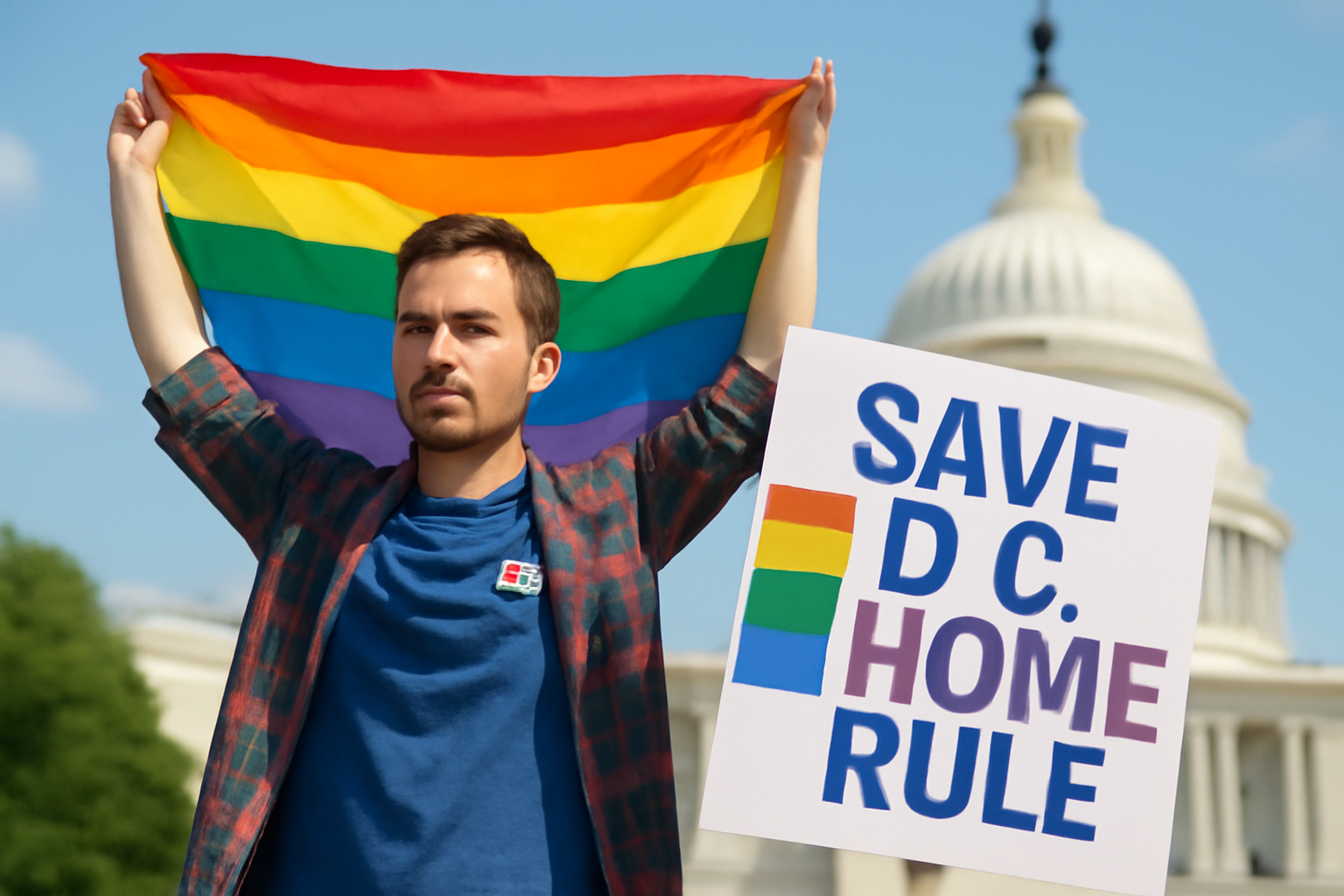
Proposed Repeal of D.C. Home Rule Raises Concerns for LGBTQ Rights
On February 6, U.S. Senator Mike Lee of Utah and U.S. Representative Andy Ogles of Tennessee introduced a controversial piece of legislation known as the "Bringing Oversight to Washington and Safety to Every Resident Act" or the "BOWSER Act." This bill aims to repeal the District of Columbia Home Rule Act, effectively dismantling the city’s existing local government structure, which has been in place since 1973. The proposed repeal has raised significant concerns among LGBTQ rights advocates who fear that such a move could undermine hard-won protections for the LGBTQ community in the nation's capital.
The D.C. Home Rule Act currently allows the city to have a mayor and city council, giving residents a degree of self-governance. However, Congress retains the ultimate authority to reject local legislation and impose federal laws on the district. Sen. Lee and Rep. Ogles argue that the current D.C. government, led by Mayor Muriel Bowser, has turned the city into a "crime-ridden shambles," citing crime and governance issues as motivations for their bill.
Both lawmakers have consistently received low scores on the Human Rights Campaign’s Congressional Scorecard, particularly regarding their records on LGBTQ issues. Despite this, they have pushed forward with the legislation, which many see as part of a broader effort by far-right Republicans to curtail progressive policies in urban centers.
The introduction of the BOWSER Act comes at a time when a Republican-controlled Congress may be more receptive to such measures, especially with former President Donald Trump having frequently criticized D.C.'s leadership and hinted at executive actions to address the city’s governance.
Importantly, the bill does not specify what would replace the current government structure if the Home Rule Act is repealed. Historically, prior to the 1973 Act, D.C. was governed by a commission appointed by the U.S. president, with minimal local input. Activists fear that a return to such a system under the current political climate could lead to the erosion of LGBTQ protections, including those enshrined in the city’s Human Rights Act.
Peter Rosenstein, a prominent gay Democratic activist in D.C., has been vocal about the potential dangers of repealing home rule. "Repeal of Home Rule at this time can only be a negative for the LGBTQ community, especially the transgender community," Rosenstein warns. He emphasizes the antagonistic stance of "MAGA Republicans" towards LGBTQ rights as a significant threat.
Howard Garrett, president of the Capital Stonewall Democrats, echoes these concerns. "Repealing D.C. home rule would be a direct attack on our city’s ability to govern itself and protect the rights of all residents, especially the LGBTQ+ community," Garrett asserts. He highlights D.C.'s leadership in advancing LGBTQ rights, from anti-discrimination laws to access to healthcare. The loss of home rule, he warns, would leave the city vulnerable to "reactionary policies" that do not reflect the values of its residents.
Critics of the repeal, including local leaders and advocates for D.C. statehood, contend that the bill is more about political posturing than public safety. Daniel Solomon, co-founder of D.C. Vote, a nonpartisan group advocating for D.C. statehood, describes the bill as a "thinly veiled attempt to punish D.C. for political differences under the guise of public safety." He argues that repealing home rule would not enhance safety but would instead undermine local progress on issues like criminal justice reform and economic growth.
Despite the claims of Lee and Ogles, Mayor Bowser points to a significant decrease in crime, with violent crime dropping by 35 percent and property crime by 11 percent from 2023 to 2024, as evidence of her administration's effective governance. While she has not directly commented on the bill, her administration continues to defend the city's right to self-governance.
As the debate unfolds, the proposed repeal of D.C. home rule stands as a critical issue with far-reaching implications for local governance and the protection of civil rights for marginalized communities, particularly the LGBTQ community. Both supporters and opponents agree that the outcome of this legislative effort will be pivotal not only for the residents of D.C. but also for the precedent it sets for federal intervention in local governance across the nation.
Related Posts
"Wicked": Unveiling Fiyero's Destiny - Hidden Clues You May Have Overlooked
Have you ever been swept away by a story that leaves you unraveling clues long after it ends? That's exactly what "Wicked" does with its enchanting narrative, unforgettable songs, and complex characters. Among them, Fiyero stands out as a charming prince whose surprising metamorphosis by curtain fall makes us wonder: were there hints about his fate scattered throughout? Let's dig deep and see if " [...]
Triumphant Trans Woman Wins Legal Battle and Inspires Others to Stand Up for Their Rights
Breaking new ground: a landmark victory in transgender rights After battling in courtrooms and enduring endless challenges, Diana Portillo, a transgender woman, has secured a monumental victory in her decade-long fight against workplace discrimination. The result? Nearly $1 million awarded in a historic settlement. But this isn't just a win on paper—it represents a powerful precedent in combati [...]
Pride Month in Latin America: Protests and Demands for Equality
**Celebrating Pride and advocating LGBTQ+ rights in Latin America** Pride Month in Latin America was a lively mix where celebration met activism. Communities united, not just throwing a party but making a stand—demanding equality and pushing governments toward better protection and rights recognition. Throughout Latin America, pride events erupted in marches and cultural displays, each with a c [...]